Philosophy IAS Mains Question Paper 2023:
There are Eight questions divided into Two Sections. Candidate has to attempt Five questions in all. Questions no. 1 and 5 are compulsory and out of the remaining, any Three are to be attempted choosing at least One question from each section.
| Philosophy IAS Mains Question Paper 2021 Paper- I |
Section- A:
1:- Write short answers to the following in about 150 words each: (10 x 5 = 50)
(a) “Precepts without concepts are blind and concepts without percepts are empty.” In the light of this statement discuss how Kant reconciles rationalism with empiricism.
(b) “History is a process of dialectical change.” In the light of this statement discuss Hegel’s approach in understanding history.
(c) “That thing is said to be free which exists solely from the necessity of its own nature, and is determined to action by itself alone.” Discuss Spinoza’s views on freedom and determinism in the light of the above statement.
(d) How does Kierkegaard argue against Hegel’s idea of universal spirit in favor of the individual as the essence of spirit? Critically discuss.
(e). What are the main arguments offered by Kant to prove that apriori synthetic judgements are possible? Discuss with examples.
2:- (a) Critically analyse Hume’s argument that causality is a matter of habit/custom involving psychological principle of association. (20)
(b) Present an exposition of Aristotle’s distinction between actuality and potentiality. Does it provide a solution to the problem of being and becoming as presented in ancient Greek philosophy? Discuss with suitable examples (15)
(c) Discuss Descartes’ theory of innate ideas and the grounds on which Locke refutes it. (15)
3:- (a) Does the rejection of metaphysics as proposed by Logical Positivists relate to problem of meaning or problem of knowledge or nature of things or all of them together? Discuss with suitable examples. (20)
(b) Elucidate the significance of bracketing and reduction in Husserl’s phenomenological method. (15)
(c) “Consciousness is what it is not and is not what it is.” In the light of this statement bring out the chief features of Sartre’s conception of consciousness. (15)
4:- (a) Why does Strawson consider person to be a primitive concept? What implication does it have for the mind-body dualism? Discuss. (20)
(b) Why according to Russell is the proposition – “The present king of France is bald” problematic? Critically discuss. (15)
(c) What were the main reasons that led Wittgenstein to shift from picture-theory of meaning to use-theory of meaning? Critically discuss. (15)
Section- B:
5:- Write short answers to the following in about 150 words each: (10 x 5 = 50)
(a) “All human knowledge is empirical and therefore relative.” Critically examine Jaina theory of sevenfold judgement (saptabhanginaya) in the light of above statement.
(b) “If Purusa and Prakṛti are two completely independent realities, then no relation between the two is possible.” In the light of this statement make a brief presentation of Sankara’s criticism of Samkhya dualism.
(c) What is Advaitin interpretation of the great sentence (mahāvākya) ‘Thou art that’ ( tat tvam asi)? Briefly discuss.
(d) Present an account of Vaiseşika’s view of negation in the light of their statement- “Negation always has a counterpositive and absolute negation is an impossibility.”
(e). Explain the nature and role of Supermind in evolution as per Aurobindo’s philosophy.
6:- (a) Discuss Rāmānuja’s criticism of Sankara’s conception of Brahman and Isvara (God). (20)
(b) Present Bhatta’s view of anupalabdhi (non-cognition) as a valid means of knowledge. (15)
(c) Elucidate Naiyayikas view of ordinary and extraordinary perception, Are justified in accepting that universals are perceived? Discuss. (15)
7:- (a) Elucidate Naiyayikas account of fallacies of the middle term in relation to five characteristics of valid middle term. (20)
(b) Liberation is defined by Advaita Vedäntins as ‘attainment of that which is already attained’. How does Sankara illustrate this statement? Discuss with your own comments. (15)
(c) Explain Chitta and its modifications in the philosophy of Yoga. Why does Yoga philosophy prescribe cessation of modifications of Chitta? Give reasons in support of your answer. (15)
8:- (a) “Ignorance of dependent origination is suffering while its knowledge is cessation of suffering.” Present an account of Buddhist soteriology in the light of above statement. (20)
(b) Write a note on Nyaya notion of Prāgabhāva (prior non-existence). How does this notion help Naiyayikas in defending their position on causation against the Samkhya view of causation? Critically discuss. (15)
(c) Do words refer to universals or particulars or both? Present an exposition of Nyaya and Mimämsä position with regard to above question along with suitable examples. (15)
| Philosophy IAS Mains Question Paper 2021 Paper- II |
Section- A:
1:- Answer the following questions in about 150 words each: (10 x 5 = 50)
(a) What is meant by justice as fairness? Explain Rawls’ theory of justice.
(b) Critically examine the anarchist’s view that “all States always and everywhere are illegitimate and unjust.”
(c) Do you agree that the rights concerning land and property have empowered women? Discuss.
(d) Critically examine the challenges faced by a multicultural society with reference to India.
(e). If monarchs are above politics, can monarchy be a systematic form of government? Discuss.
2:- (a) Elucidate why the absolute nature of sovereignty was rejected by Laski. (20)
(b) Do you agree that duty and accountability must be given priority over rights for the better functioning of a State? Justify your answer. (15)
(c) In the present scenario, will the emphasis on skill education enhance development? Evaluate. (15)
3:- (a) Explain Historical Materialism and discuss its relevance in the context of social development and change. (20)
(b) Critically analyze the social and political significance of Ambedkar’s notion of annihilation of caste. (15)
(c) How does gender discrimination lead to female foeticide and social imbalance? Discuss. (15)
4:- (a) “Severity of punishment should be proportionate to the seriousness of the crime.”– Do you agree that while punishing a juvenile, the nature of the crime should be considered? Justify your answer. (20)
(b) Explain the challenges faced by a democratic state and the ways to overcome them. (15)
(c) Secularism is not a rejection of religion but acceptance of all religions. Discuss. (15)
Section- B:
5:- Answer the following questions in about 150 words each: (10 x 5 = 50)
(a) Elucidate the personalistic and impersonalistic aspects of God.
(b) Can religious beliefs be justified? Discuss.
(c) Does religion influence the moral behavior? Explain the interactive relation between religion and morality.
(d) Discuss Wittgenstein’s view about the non-cognitive nature of religious language.
(e). What is Agnosticism? How do agnostics conceptualize the relation between religion and God? Discuss.
6:- (a) Critically examine Plato’s apriori proofs for the immortality of the soul. (20)
(b) In what sense is God both immanent and transcendent in theism? Discuss. (15)
(c) Explain the rational and irrational aspects of faith in the discourse of religion. (15)
7:- (a) Critically examine the arguments of Nyaya for the existence of God. (20)
(b) Examine the significance of the concept of rebirth in the theory of Karma. (15)
(c) Explain the symbolic nature of religious language according to Tillich. (15)
8:- (a) “All evil is either sin or punishment for sin.” –St. Augustine. Critically discuss. (20)
(b) Does religious pluralism invite inter-religious conflicts and destroy the truth of religion? Discuss. (15)
(c) Examine the relation between mystical experience and revelation and expound their significance in religious life. (15)

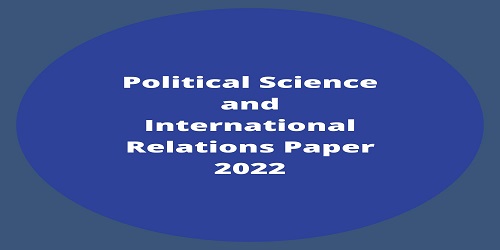
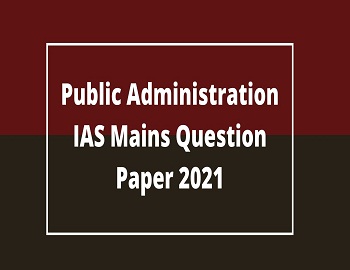
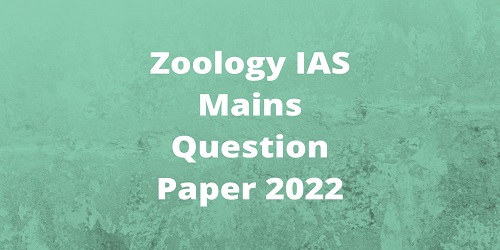
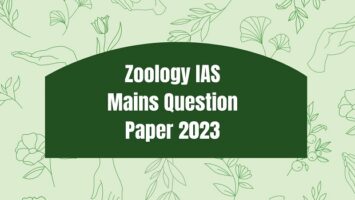
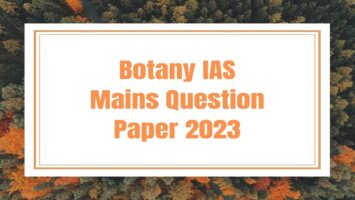
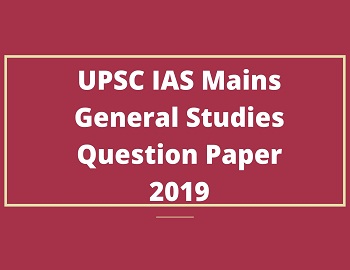
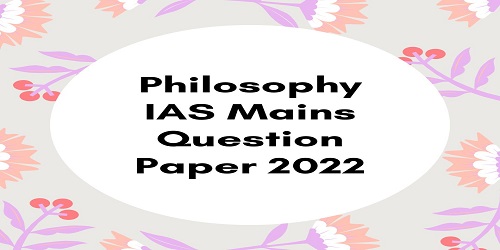
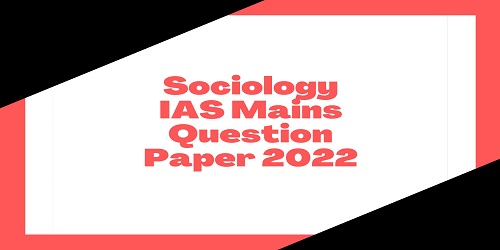
Comments (No)